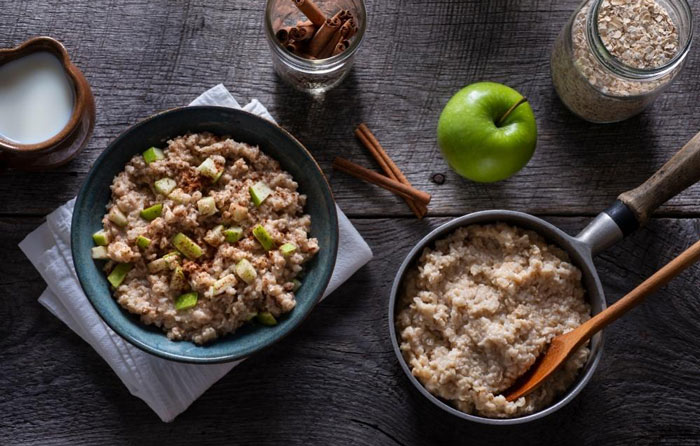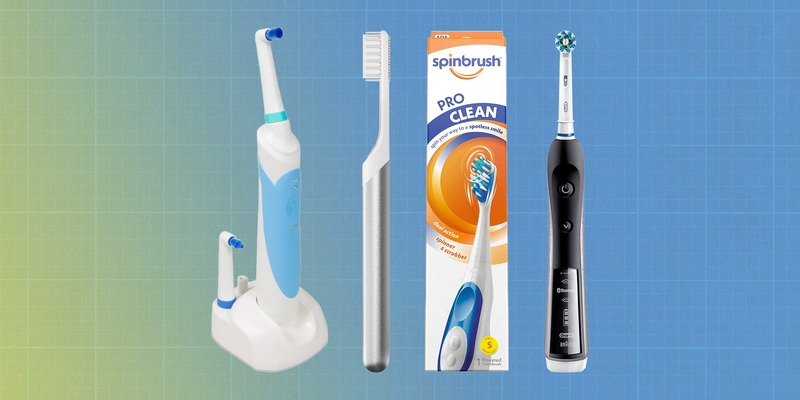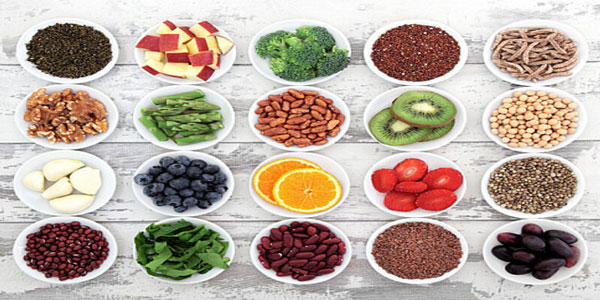Oats are often touted as a healthy breakfast option. But is oatmeal really a healthy option?
While it’s easier to digest, oats are high in energy and saturated fats. So, before you chow down on your morning bowl of oats, consider these facts and make an informed decision.

· Oatmeal should be made from rolled oats that have been minimally processed.
This means that the outer coat has not been removed by rigorous milling or steaming methods; it also means no chemicals have been applied to kill enzyme activity within the grain.
It is impossible for fully processed cereals to meet health guidelines because their protein-rich bran and germ are removed by processing techniques such as rolling or extrusion. The bran and germ are the healthiest components of oats. They contain a balanced array of nutrients, including fiber, B vitamins, vitamin E, and the minerals magnesium, iron, and phosphorous.
· A healthy breakfast should contain fiber-rich carbohydrates, which slowly release energy throughout the day without a surge in blood sugar.
A cereal like steel-cut oats is recommended as it's rich in soluble fiber. For example, one bowl of oatmeal made from steel-cut oats contains about 4 grams of soluble fiber, about 14 percent of the recommended daily value (RDA) for adults. This soluble fiber is prebiotic that fuels the healthy bacteria in our digestive tract. In turn, these bacteria help to reduce inflammation.
· Ideally, oatmeal should be prepared with water at room temperature or slightly warmer to prevent it from solidifying—a common problem.
The right amount of oat flour can allow for ease of mixing. We recommend making half your oatmeal as per the package's directions and then adding the other half after adding the first half; this will help you get a thicker consistency when cooking.
How Much to Eat in A Day?
Oats are a grain high in energy and saturated fats, so it's recommended that you eat it in moderation (1/2 cup serving per day). Some of the healthiest foods contain fat, so you don’t have to be concerned about eating oatmeal if you limit your intake of foods with high amounts of fat. One serving contains approximately 1.4 grams of total fat, according to the U.S. Department of Agriculture (USDA). Insoluble fiber is found in high-fiber, whole grain foods. It decreases the amount of cholesterol that can enter the bloodstream, which helps reduce cholesterol levels.
If you’re not sure about the health benefits of oatmeal, here’s a quick rundown.
Oatmeal can lower cholesterol levels, reduce the risk of heart disease and diabetes, and increase satiety, which can improve your overall health. Oatmeal has also been shown to promote weight loss because of its fiber content, which satisfies you after eating it.
Most importantly, oatmeal is a whole grain. Whole grains are rich in nutrients like B vitamins, vitamin E, and magnesium while being low in calories—a great combination for health-conscious consumers.
How to Make Oatmeal Healthy?

Oats are a healthy diet staple and can be eaten any time of day as part of a balanced nutritious diet. Oatmeal is usually made with water or milk and topped with dried fruits, seeds, or nuts. Oats can be enjoyed for breakfast, an afternoon snack, or even a healthy dessert recipe. Oats are considered a healthy breakfast, but you can make them even healthier by taking a few simple steps.
· First of all, use the right amount of oats for the dish.
An easy way to measure this is to eat half and then add the rest afterward. This will give your oatmeal a thicker consistency, and you'll feel full sooner rather than later. Make sure you know what kind of oatmeal you're buying, too; if it's not made with whole oats, then it doesn't offer all of the same health benefits, so try to eat those kinds whenever possible.
· Next, make sure your oats are fully cooked before eating them.
Allowing them to sit for an hour or longer after cooking will allow the oats to absorb more water and become chewier. Oatmeal should always be served with a little fat such as butter, olive oil, almond, or peanut butter to help the oats have a nice texture and taste.
· Last but not least, if you’re not sure about how healthy your oatmeal is, skip it altogether.
You can always add in other fruits, nuts, or seeds instead of eating the whole batch of oatmeal by itself. You'll get the same health benefits from a bowl of oatmeal with a little extra fat, but it won’t have the potential for going bad in the fridge if you eat it as is. Instead, make a healthy version of this breakfast staple like this one and share it with friends and family. Enjoy!




